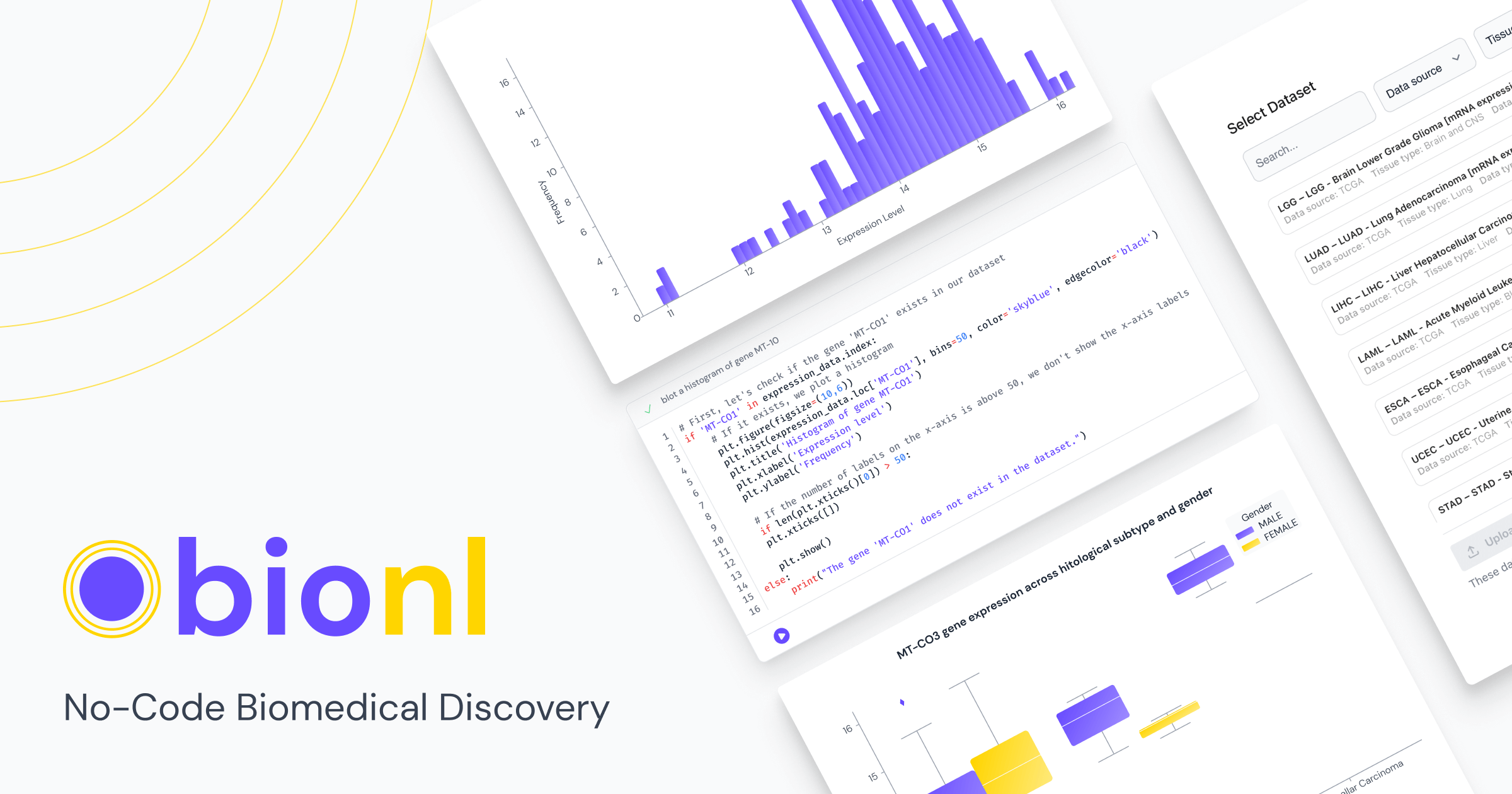Epigenetics Research: Unveil Gene Expression with Bionl.ai

Introduction
Epigenetics, an enthralling and rapidly evolving field of biology, delves into the intricate mechanisms that regulate gene expression without altering the DNA sequence itself. This fascinating area of study focuses on reversible changes influenced by environmental factors, lifestyle choices, and even individual experiences, offering insights far beyond traditional genetic research.
Understanding Epigenetics Research
Epigenetics research is dedicated to understanding the complex interplay between our genes and the environment. It's about decoding how these interactions shape cellular processes, organismal development, and disease susceptibility. This field is crucial in developing innovative therapeutic approaches and diagnostic tools for a wide range of health conditions, from cancers to neurological disorders. TED-ED presents this video explaining epigenetic.
Objectives of Epigenetics Research
The diverse aims of epigenetics research include:
- Role in Development and Disease: Researchers are keenly exploring epigenetic changes in various disorders, seeking to understand how these modifications impact disease progression and treatment response.
- Therapeutic Interventions: Targeting epigenetic modifications opens a new frontier in personalized medicine, offering hope for more effective and tailored treatments.
- Environmental Impact: Deciphering how environmental factors alter epigenetic patterns is key in assessing health risks and developing preventive strategies.
- Aging and Epigenetics: With aging being a complex process, understanding epigenetic changes can pave the way for interventions promoting healthier and more resilient aging.
Techniques in Epigenetics Research
Epigenetics research utilizes various cutting-edge techniques, such as:
- DNA Methylation Analysis: This involves studying the addition of methyl groups to DNA, impacting gene expression.
- Histone Modification Analysis: Investigating how modifications to histones, the proteins packaging DNA, regulate gene accessibility and expression.
- Non-coding RNA Analysis: Focusing on how microRNAs and other non-coding RNAs regulate gene expression.
- Chromatin Immunoprecipitation (ChIP): Identifying DNA sequences bound by specific proteins, crucial for understanding gene regulation.
- Whole-genome Bisulfite Sequencing (WGBS): Offering a comprehensive view of DNA methylation across the genome.
Data Analysis in Epigenetics Research
Data analysis is a cornerstone of epigenetics research, involving:
- Preprocessing: Cleaning and preparing data for analysis.
- Normalization: Ensuring data comparability across samples.
- Statistical Analysis: Identifying significant patterns and correlations.
- Visualization: Employing tools to present data in an accessible and meaningful way.
Bionl.ai: Empowering Epigenetics Research
In the realm of epigenetics, data analysis can be particularly challenging due to the complexity and volume of data. This is where Bionl.ai steps in, providing a powerful platform for researchers. Bionl.ai excels in handling large datasets, offering intuitive tools for data analysis and visualization. It empowers researchers to explore epigenetic data through natural language prompts, significantly simplifying the analysis process. Whether it's identifying key methylation patterns or interpreting histone modification data, Bionl.ai makes complex epigenetic data analysis more accessible and efficient.
Conclusion
The journey through epigenetics research is leading us to new frontiers in our understanding of gene expression and its profound implications on health and disease. As we continue to unravel these mysteries, tools like Bionl.ai are invaluable in accelerating research and fostering breakthroughs, marking an exciting era in the field of biomedical research.



